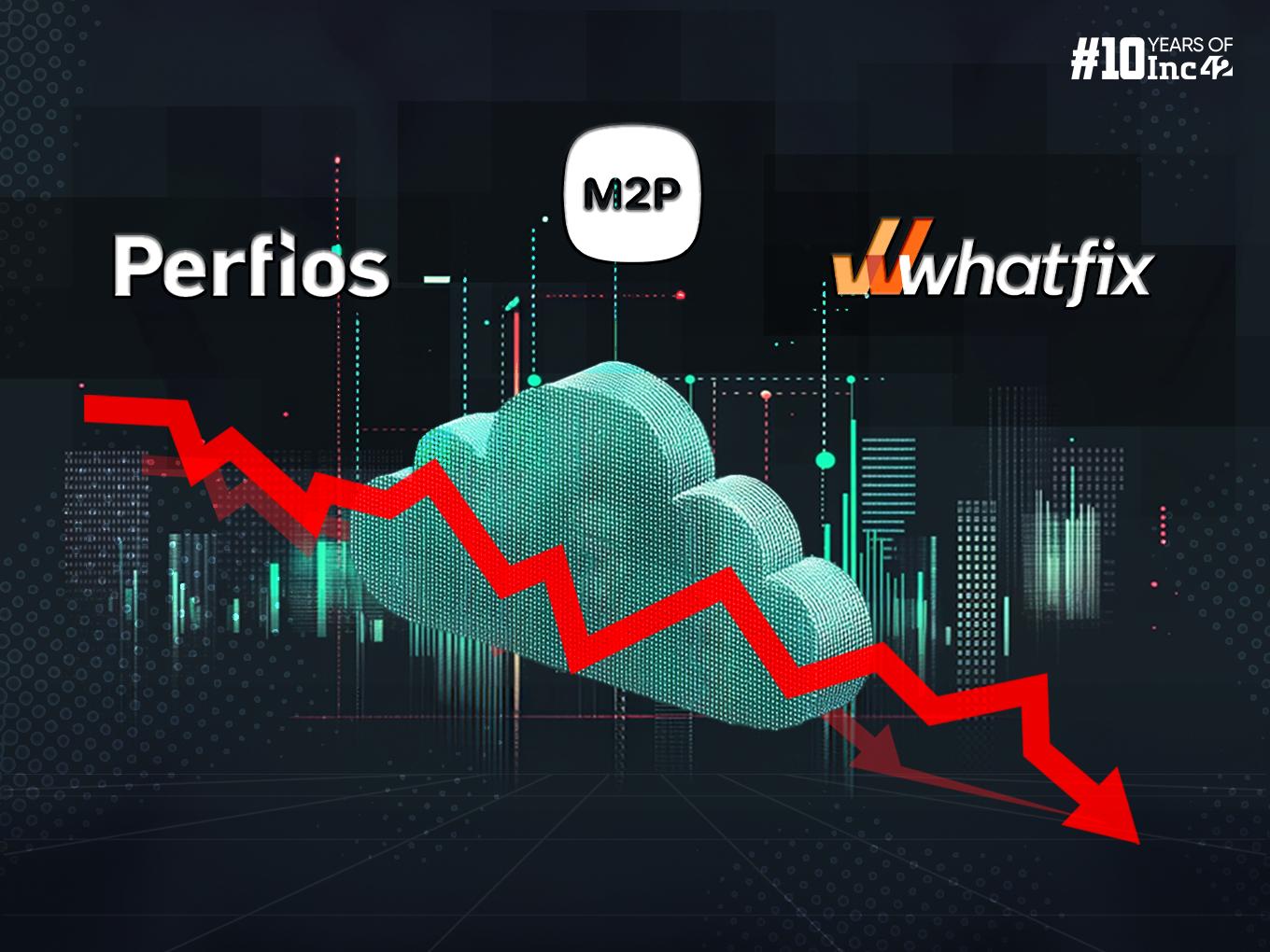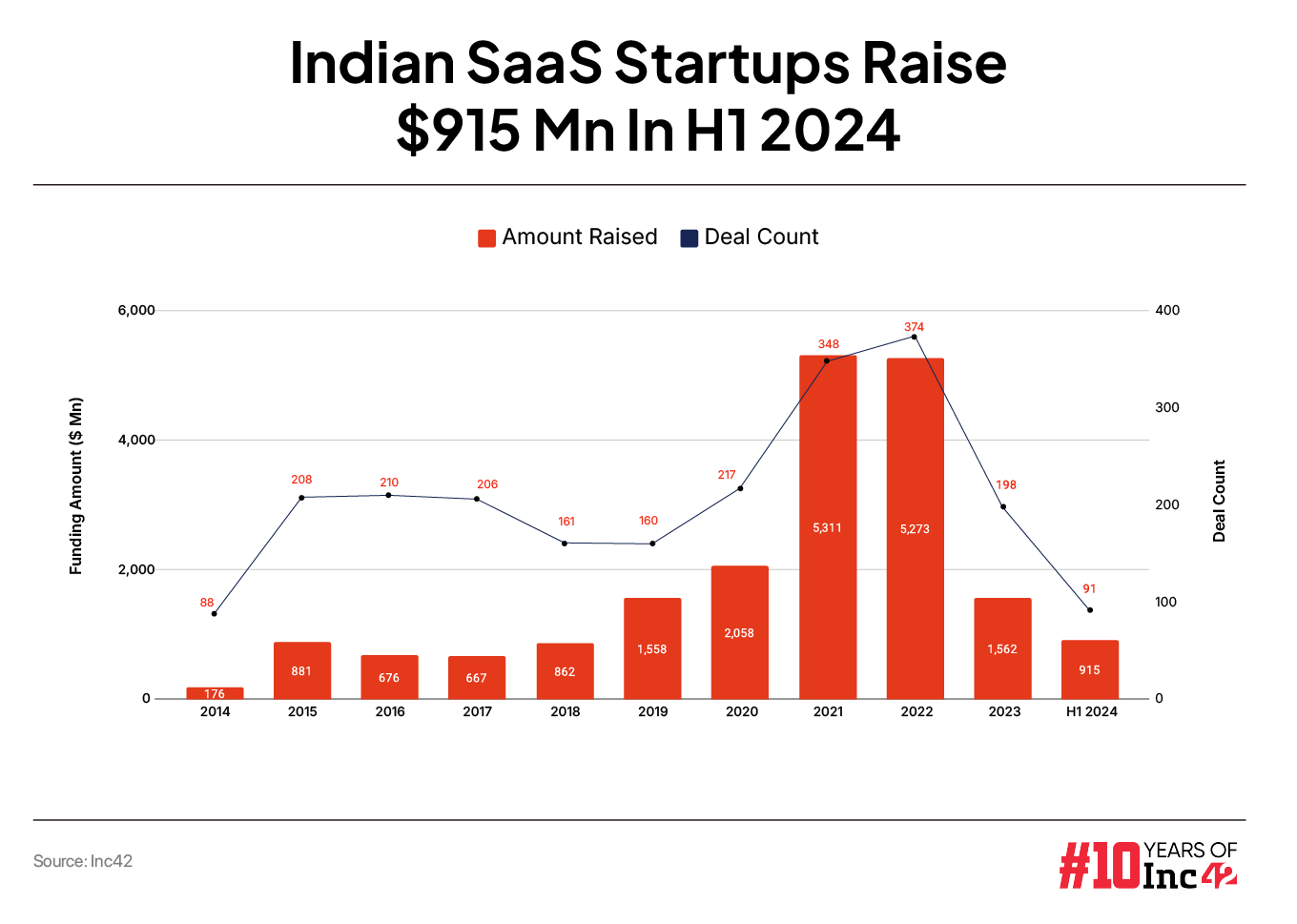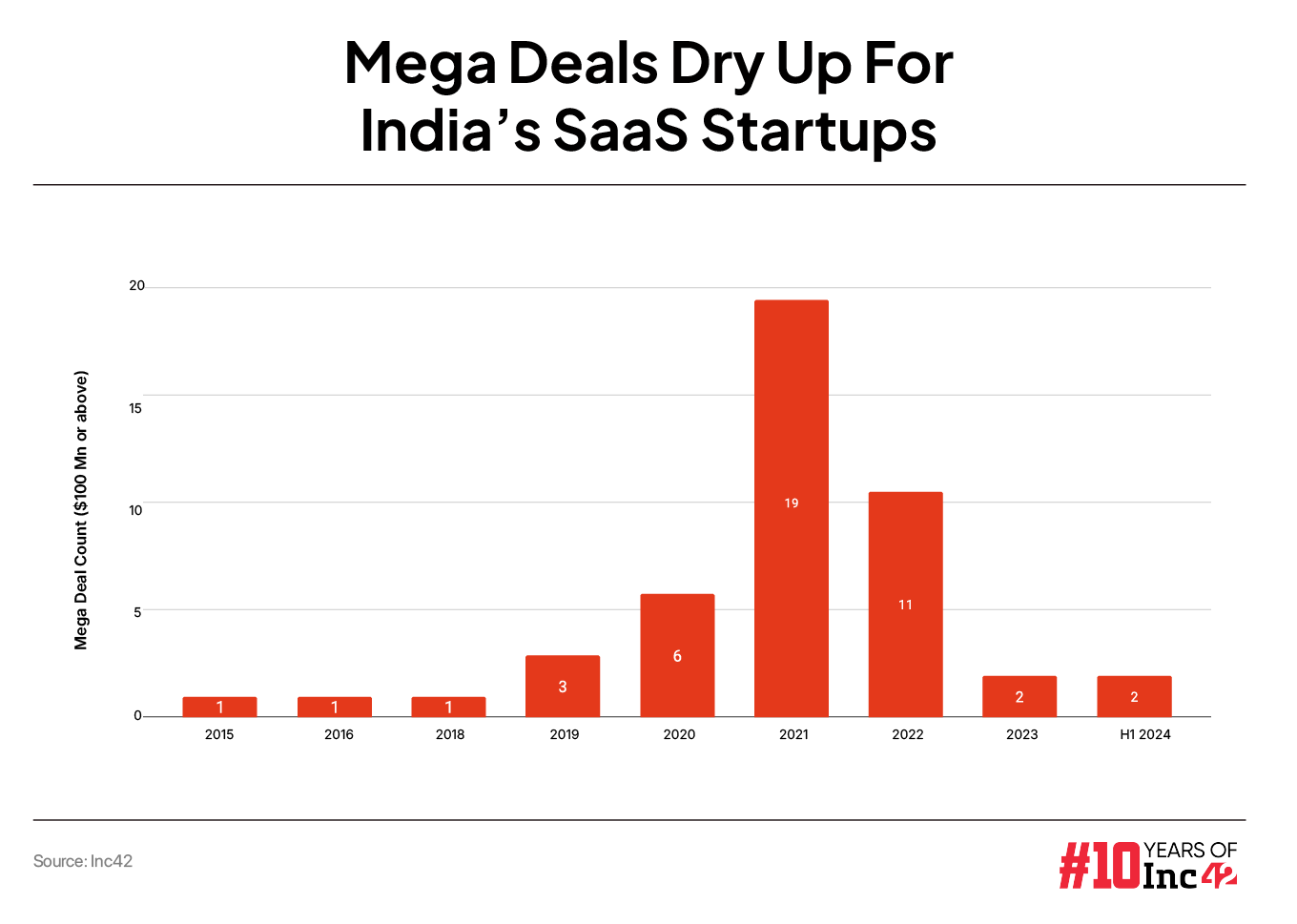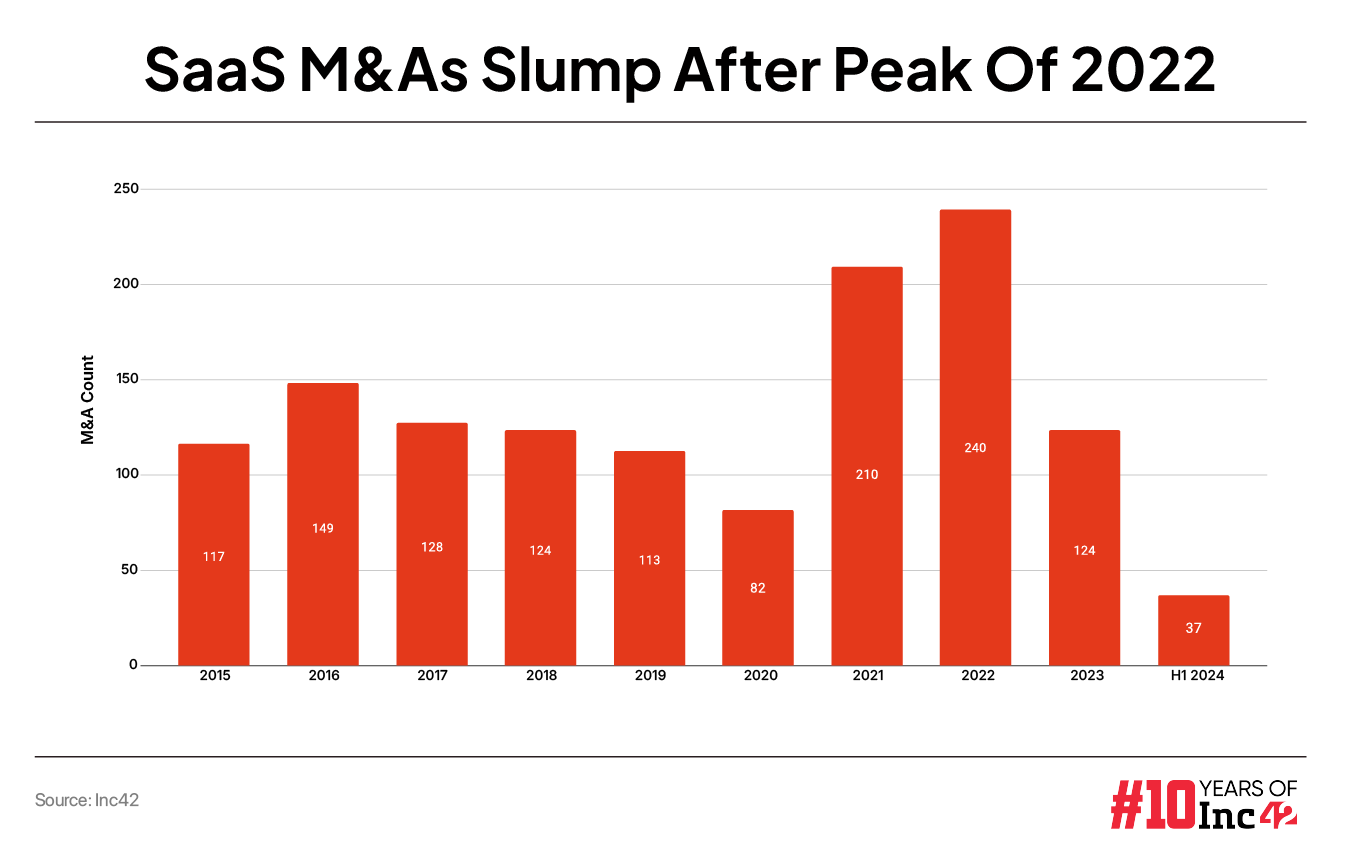
On the face of it, the Indian startup ecosystem is showing some signs of revival this year, ticking all the right boxes. This also resulted in an increase in funding for Indian SaaS startups, but all is not well.
Funding for Indian SaaS startups nosedived 70% year-on-year to $1.56 Bn in 2023 from $5.27 Bn in the previous year, according to Inc42’s India’s SaaS Startup Ecosystem Report, 2024.
SaaS funding peaked in 2021, when more than $5.3 Bn was invested in SaaS startups. While funding was on a downward spiral since then, it showed some signs of revival in the first six months of 2024.
Indian SaaS startups raised $915 Mn from investors till June 2024, 33% higher than H1 2023 ($683 Mn). This is nearly 18% of the total startup funding tally of $5.3 Bn in the first six months of 2024. 
Even unicorn creation numbers are encouraging for SaaS, contributing three out of the six new unicorns in 2024 — Ola Krutrim, RateGain, Perfios. Besides these three, Ather Energy, Rapido and Moneyview also entered the unicorn club in 2024.
Mega Deals Dry Up For India’s SaaS Startups
Despite this unicorn creation, the SaaS sector did not see too many mega deals ($100 Mn and above) this year. As of H1 2024, there were two mega rounds recorded, which is the same as all of 2023. In 2022, the Indian SaaS ecosystem saw 11 such deals.
Anirudh A Damani, managing director at Artha Venture Fund, believes that SaaS investors have turned more cautious due to a market correction following the funding boom of 2021. At the time, SaaS startups were often valued at inflated multiples, which resulted in bloated valuations.
Damani cited the example of Bengaluru-based cloud communications platform Twilio, which was valued 40X higher than its sales. Such multiples were “unsustainable” and in Twilio’s case the valuation has reset dramatically to about 3X the sales, he added.
“With rising interest rates ending the era of cheap capital, investors seek returns based on realistic valuations tied to actual earnings. It’s challenging to justify investing at 15X, 20X, or even 40X sales without clear profitability. As valuations adjust, investors have pulled back on mega deals until a new equilibrium is found,” Damani told Inc42.
Not only did mega deals dry up for SaaS startups, even the median ticket size fell to under $2 Mn in H1 2024 from $2.1 Mn in 2023 and $3.2 Mn in 2022.
However, unicorns have been a notable point for the SaaS ecosystem this year. Ola Krutrim is arguably in the weakest position in terms of the current valuation. Despite not even completing one year of operations, the company is valued at $1 Bn, which shows that perhaps bloated valuations are not yet completely out of the picture.
Artha Venture Fund’s Damani believes that startups need to focus on building sustainable businesses instead of chasing the unicorn tag. Companies focusing on profitability and strong revenue growth will continue to remain attractive and be valued at a premium.
IPO-bound Perfios is an example of a profitable SaaS startup that justifies its relatively high valuation. The startup turned profitable in FY23 with INR 7.8 Cr in PAT as against a loss of INR 16.8 Cr in FY22.
“The slowdown in mega deals highlights the need to focus on building sustainable businesses rather than chasing unicorn status. Startups that raised funds at unsustainable valuations now face challenges in securing additional capital unless they adjust their expectations and accept down rounds. This is part of a global correction, not just in India,” Damani said.
SaaS M&As Slump After Peak Of 2022
With investor interest dwindling in India’s SaaS startups, the number of merger and acquisition (M&A) deals dropped sharply during 2023 and H1 2024.
As per the Inc42 report, India’s SaaS startup landscape saw only 37 M&A deals in the first six months of 2024. This number stood at 124 in the entire 2023.
The decline is even stark when compared to M&As in 2022 and 2021, when 240 and 210 deals took place, respectively.
Horizontal SaaS Dominates Deal Activity
Of the total $20 Bn funding raised by Indian SaaS startups from 2014 to H1 2024, close to 73% was snapped up by horizontal SaaS startups.
In the first half of 2024, vertical SaaS startups raised $196 Mn across 24 deals, which pales in comparison to the $719 Mn raised by horizontal SaaS companies across 67 deals.
The Indian SaaS market is currently valued at $14 Bn and is expected to become a $70 Bn opportunity by 2030. As such, vertical SaaS is a massive opportunity waiting to be unlocked in India.
Startups are leveraging artificial intelligence (AI) and machine learning (ML) capabilities to drive the next wave of growth. In particular, there has been a revival in vertical products for sales, HR, finance and marketing operations, which leverage generative AI for predictive analytics, seamless data processing and automation.
[Edited By Vinaykumar Rai]
The post Indian SaaS Startup Funding Sees 33% YoY Spike In H1 2024 appeared first on Inc42 Media.
https://ift.tt/JikhROl









0 Comments